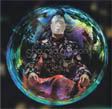The ways of Japanese TV drama producers must be as mysterious to their Hollywood counterparts as the statues of Easter Island.
|
Whereas Hollywood prefers to spin out hit shows to infinity, while raking in millions from syndication — "Seinfeld" forever! — Japanese drama shows usually have limited runs of 11 episodes or so, no matter how stratospheric their ratings. They can have profitable afterlives on DVD and other media, but not the sort of syndicated eternities enjoyed by the most popular U.S. shows.
Japanese producers have explained this difference to me by saying that, for local audiences, dramas are like news — and thus naturally have short life cycles.
But there are exceptions, as the new Fuji TV-produced film "Hero" proves. The Fuji series the film is based on, starring idol-group SMAP heartthrob Takuya Kimura as a rule-breaking delinquent-turned-prosecutor, racked up humongous 30-plus ratings for every episode when it was broadcast from January to March 2001. This is comparable to Matsui hitting 11 straight home runs.
Instead of signing Kimura and company to another season, however, Fuji dropped the show for five years, finally reviving it for a special that aired in July 2006 — which also scored more than 30.
By this time, Fuji TV producer Chihiro Kameyama — the mastermind behind the smash "Odoru Daisosasen (Bayside Shakedown)" franchise and many other hit films — was developing a "Hero" feature. Set for release on 470 screens on Sept. 8, "Hero" is expected to equal or surpass the spectacular take of the two "Odoru Daisosasen" films, the second of which grossed ¥17.35 billion in 2003, more than that year's "Harry Potter" entry.
Nearly all the original cast are back for "Hero," beginning with 34-year-old Kimura, a delinquent no longer. Director Masayuki Suzuki also helmed the TV series — and brings the same tube-trained sensibility to the film. Closeups abound and everyone overacts furiously, like manga characters come to life. The plot may also be absurdly contrived, but Suzuki considerately keeps the explanations coming, so that even those who take extended bathroom breaks can follow along.
In other words, stylistically and narratively, "Hero" is a TV episode writ large — and those expecting a real movie will leave disappointed.
But it will also probably fulfill Fuji's rosy box-office predictions: Kameyama, Suzuki and the rest of the creative staff know exactly what they are doing.
Hollywood-style suspense, thrills and violence may be in short supply — this is yet another Fuji film in which the on-screen body-count is zero — but Japanese-style teamwork, in its most idealized form, is on abundant, appealing display. Also, the members of Kimura's team are quirky but likable individualists (hardly credible given that these are public prosecutors we're talking about — but what the hey), while the bickering relationship between Kimura and Takako Matsu, playing his nerdy-but-cute colleague, generates real sparks, though ones far more comic than sexual.
The film not only romanticizes the group-centered lives that many in the audience are leading, but gives hope to the socially challenged, the women among them especially, that they can find purpose, comradeship and, most importantly, true love. It's a big, flattering shout-out to the folks in the seats.
As the film begins, the scruffy rebel hero, Kohei Kuryu (Kimura), returns to the Josai Branch of the Tokyo prosecutors' office after a 6-year interval. The geeky Maiko Amamiya (Matsu), who was once his professional partner and something-like-a-girlfriend — is strangely standoffish, however. (Or not so strangely — if she didn't give Kuryu the brushoff at first, the film's romantic arc would be flat.)
Soon after his return, Kuryu is given what looks to be an open-and-shut case: A young salaryman, who was engaged to be married, got into an after-dark dust-up with a blond-haired punk, hit his head on the curb and fell into a fatal coma. The punk escaped in a van, but was ID'd by a neighborhood housewife. Arrested, he confessed to being the assailant. But when the punk finally has his day in court, he retracts his confession, while his lawyer, a saturnine former prosecutor named Gamo (Koshiro Matsumoto), who is now the winningest defense attorney around, shreds the prosecution's case. Instead of breaking early for lunch, Kuryu finds himself with a real battle on his hands.
How does a lowlife punk rate a lawyer like Gamo? While mulling that question, Kuryu has to find evidence. This quest involves Amamiya — and soon brings both of them, as well as the entire Josai team, into conflict with a special investigation squad, whose bloody-minded leader (Teruyuki Kagawa) wants to take over the case. Meanwhile, a powerful politician (Kazuyoshi Morita) under indictment for bribery is found to have ties to Gamo. What is their game? The answer to this and other mysteries seems to lie in Korea, where the suspect's stolen van has gone. Kuryu and Amamiya book their tickets to Busan.
There are various subplots, including one arising from the murder case depicted in the TV special, but the beating heart of the film is its relationships. It's biggest moments are not the thrills of the chase, but the rush from group solidarity in action and love in sudden (if thoroughly foreshadowed) bloom. This was also the formula of the "Odoru Daisosasen" films and, though hardly unique to Japan, it has been hugely successful here.
Kuryu may not wear a tie, even in court — it's against his punk code — but he is a loyal, dedicated team player, not a loner rebel. The film's message is that, first, by banding together with like-minded others in a common cause, anyone can be a hero and that, with a few rotten exceptions, wareware Nihonjin ("we Japanese") are the nicest folks on the face of the earth. Who wouldn't want to buy a ticket?
source: Japan Times






![KinKi Kids 32th single [変わったかたちの石]](http://img.photobucket.com/albums/v514/mij/KinKi%20Kids/kawatta.gif)




0 comments:
Post a Comment